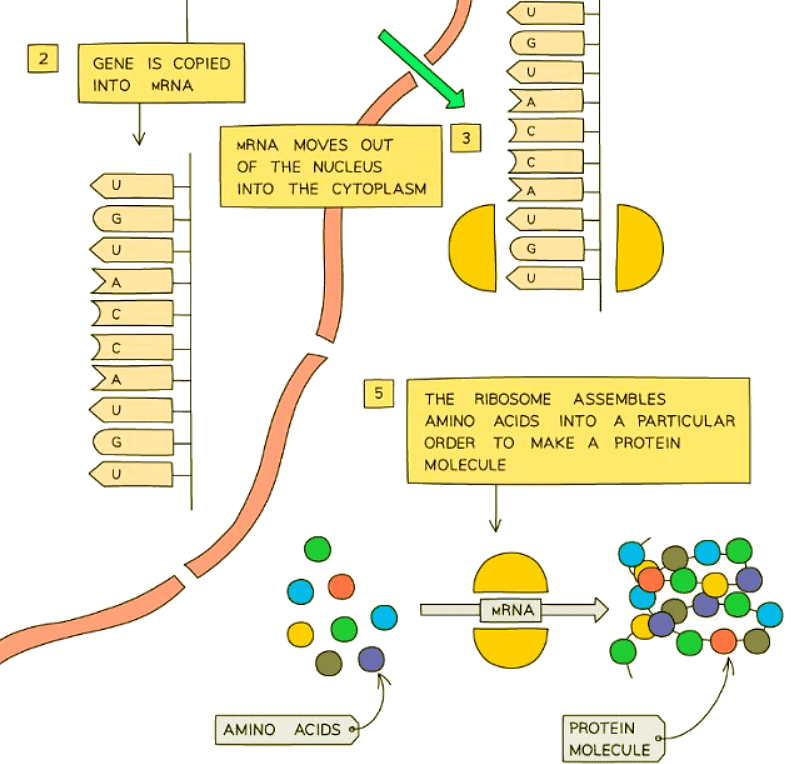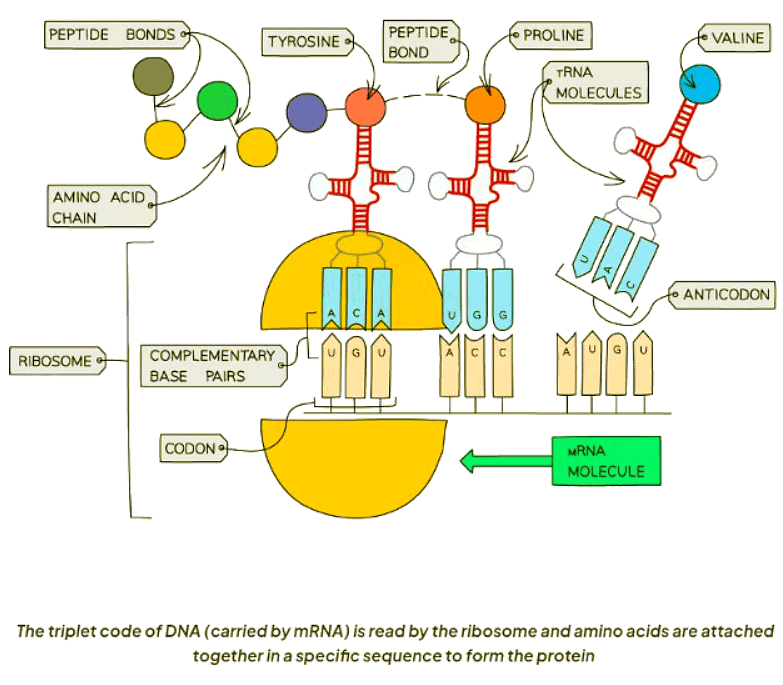Year 11 Exam > Year 11 Notes > Biology for GCSE/IGCSE > Protein Synthesis
Protein Synthesis | Biology for GCSE/IGCSE - Year 11 PDF Download
Transcription & Translation

 Protein synthesis
Protein synthesis
- Proteins are synthesized by ribosomes under the control of DNA, where the sequence of amino acids is determined by the sequence of bases in the DNA molecule.
- DNA, being too large to exit the nucleus, undergoes transcription to produce messenger RNA (mRNA), which carries the genetic information to the ribosomes.
- After mRNA is transcribed, it exits the nucleus and attaches to a ribosome for further processing.
- Ribosomes interpret the mRNA code in sets of three bases, each triplet coding for a specific amino acid.
- Through translation, the ribosome converts the base sequence into a sequence of amino acids, forming the protein chain.
- Once the chain is complete, it is released from the ribosome to undergo folding and attain its final protein structure.

Question for Protein SynthesisTry yourself: Which molecule carries the genetic information from DNA to the ribosomes during protein synthesis?View Solution
The document Protein Synthesis | Biology for GCSE/IGCSE - Year 11 is a part of the Year 11 Course Biology for GCSE/IGCSE.
All you need of Year 11 at this link: Year 11
|
110 videos|158 docs|34 tests
|
FAQs on Protein Synthesis - Biology for GCSE/IGCSE - Year 11
| 1. What is protein synthesis? |  |
Ans. Protein synthesis is the process by which cells build proteins. It involves translating the genetic information found in DNA into a functional protein.
| 2. What are the two main steps of protein synthesis? |  |
Ans. The two main steps of protein synthesis are transcription, where the DNA sequence is copied into mRNA, and translation, where the mRNA is used as a template to assemble amino acids into a protein.
| 3. How does protein synthesis occur in a cell? |  |
Ans. Protein synthesis occurs in the cell's ribosomes, where mRNA is read and amino acids are brought in by tRNA molecules to build a protein according to the genetic code.
| 4. What is the role of ribosomes in protein synthesis? |  |
Ans. Ribosomes are the cellular machinery where protein synthesis takes place. They provide the platform for mRNA and tRNA to interact and facilitate the assembly of amino acids into a protein.
| 5. How can mutations affect protein synthesis? |  |
Ans. Mutations in the DNA sequence can alter the mRNA produced during transcription, leading to changes in the amino acid sequence during translation. This can result in the production of a non-functional or altered protein.

|
Explore Courses for Year 11 exam
|

|
Signup for Free!
Signup to see your scores go up within 7 days! Learn & Practice with 1000+ FREE Notes, Videos & Tests.
Related Searches
















